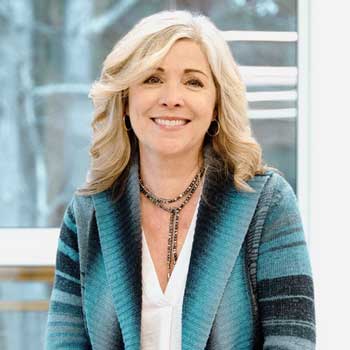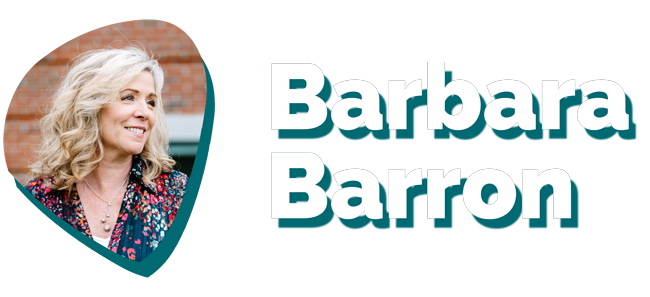by Barbara Barron | Posted February 14th, 2024 | Subscribe to this newsletter

There is no end to the lists of “best practices” we might create to guide our work in independent school advancement. My view is that real advancement lives both inside and outside the development office door. I take a broader view, including lots of people.
Here’s my Top Ten list, compiled from three articles I originally published in the fall of 2021 to capture some of the best practices I have seen in great schools over the past many years.
#10 – The faculty – yes, the faculty – have a clear understanding of the important roles they play in advancing the school.
What this looks like: advancement professionals make it a point to spend time with their teaching colleagues to share some of the key aspects of their work. These might be periodic reports about their work and accomplishments, and previews of what key events are ahead. The office of admission updates their colleagues on their progress towards filling the school with right-fit students; development shares the ways they are identifying and engaging families eager to be supportive. Faculty are on the lookout for events and experiences in their classrooms, studios, and on the playing fields that are great examples of the school’s mission in action that they share with the advancement team.
#9 – Volunteers understand and respect the roles they are welcome to play. They embrace the school’s systems and communication processes.
What this looks like: Parents are educated early about the best ways they can be helpful. The school publishes clear guidelines. The Parent’s Association leadership makes a point to help onboard new families to start healthy habits of engagement from the first days. The school leadership keeps clear boundaries to prevent parents from overreaching, setting or changing meeting agendas without buy-in from the school, or making unreasonable demands.
#8 – The Head of School fosters an open, collaborative working relationship between the development, admission, and business offices characterized by a respectful, collegial atmosphere.
What this looks like: The Directors of those key departments meet regularly to stay in close communication about important timelines and deadlines. They seek to support one another by sharing calendars and regularly reconcile important data points and reports. When tensions arise between any members of the staff of these departments, the directors work with them to find positive solutions. Successes are celebrated. Setbacks are handled and learned from.
#7 – Fundraising goals are set with input from the development staff.
What this looks like: the business office and the Board‘s finance committee understand and appreciate that fundraising is a professional process, not a faucet that can be turned on or up at will. Goals for the school are strategic in nature and developed based on a realistic set of data and reasonable timelines. Members of the development committee and the professional staff are integral members of the planning of future goals and projects.
#6 – Advancement professionals have a seat at the table to help the school move towards a true culture of philanthropy.
What this looks like: That seat is at the Board table and at the leadership team meeting. The advancement director is a trusted thought partner. The entire advancement team has access to important information about students and families that is germane to their ability to create and maintain trusting, respectful relationships with families. Other members of the leadership team know they can trust the advancement office with confidential information. They follow up on requests from the advancement office.
Have you subscribed to this newsletter yet? It only takes a minute.
#5 – There is an authentic spirit of leadership and mentorship throughout the organization modeled by the Head of School.
What this looks like: Heads with deep experience are eager to share and mentor advancement staff. Those Heads with less development experience seek the counsel and recommendations of their Directors. They respect standing meetings with their directors and make time on their busy calendars for strategy planning sessions prior to important donor meetings. They keep good notes or share meeting notes verbally (and immediately) so they can be recorded by the department. They never go rogue when a plan has been agreed upon and they follow through with assignments.
#4 – School trustees are carefully and intentionally selected and serve enthusiastically in their roles to secure the vital resources the school needs to deliver on its mission. They fully understand and embrace their responsibilities.
What this looks like: The Committee on Trustees has a well-designed process for identifying and vetting prospective trustees. The interview questions and process enable the school to learn as much as possible about the prospect’s skills and willingness to serve, including their responsibilities for securing charitable support for the school. All new trustees receive a thoughtful, comprehensive orientation, including information from the professional staff. There is a robust and valuable ongoing professional development program, All trustees are fluent in their roles and responsibilities. They give meaningfully to the school, keeping it a top philanthropic priority during their tenure. They give first and last to all fundraising campaigns and are willing to speak to others in the community about why they support the school. When asked to help cultivate, solicit, and steward donors, they do so with alacrity. They follow through and report back to the advancement office.
#3 – When times get tough, the school doubles down on support for its “sales” force, the admission and development staff.
What this looks like: Since the school leadership understands that revenue is derived from only two real sources: tuition and gifts, those revenue streams are treated as the vital lifeblood they are. Cutting budgets for marketing or the cultivation and stewardship of donors is considered only as a very last resort. The advancement team is supported in their work, given credit for accomplishments, and treated with respect and appreciation.
#2 – Even in very small schools, development professionals are given realistic responsibilities and provided with support.
What this looks like: One-person development shops are common in small independent schools. But when those hard-working pros are left to work virtually in a closet, without a team, and without support, the resulting burnout is predictable. Great schools don’t let this happen. They find resources to outsource some of the demands even if it means going to an angel donor. They find administrative help in the form of interns or very carefully selected parent volunteers. They keep expectations reasonable by setting realistic goals and avoiding project creep. They find resources for important professional growth and collegial opportunities that are the care and feeding these solo practitioners crave. And deserve.
#1 – Advancement professionals are treated as the respected organizational leaders they are in all aspects of their work. They are loyal, trusted, even beloved members of the community, with long, successful tenures.
What this looks like: The development team is a vibrant, high-functioning office characterized by enthusiasm, professionalism, and skills. They are led with vision and clear direction. The Director supports the growth of each member of the office and advocates for them to the Head for things like salary increases, new responsibilities, and professional growth. The team sticks around and that longevity results in deep institutional knowledge and vibrant relationships with families including alumni families. Annual evaluations create a growth mindset. From the director on out, everyone receives helpful feedback intended to both identify areas for improvement but also to recognize achieved success. There is a strong sense of respect for the work, job satisfaction, — even joy.
How does your school stack up? If you could use someone to tell these truths to those in power, reach out. That is one of the most valuable benefits of hiring a consultant.

Barbara Barron
[email protected]
Share this post:

BARBARA BARRON is one of the most respected and highly sought-after independent advancement professionals in the country, having worked with dozens of schools in every corner of the United States.
She has raised over $20 million for schools where she served as the Director of Development. Barbara is a New York Times bestselling author, speaker, and presenter who currently advises dozens of schools in various capacities. She is considered a thought leader in the world of advancement, with her writing widely shared by professionals in development offices worldwide.
More Advancement Articles






